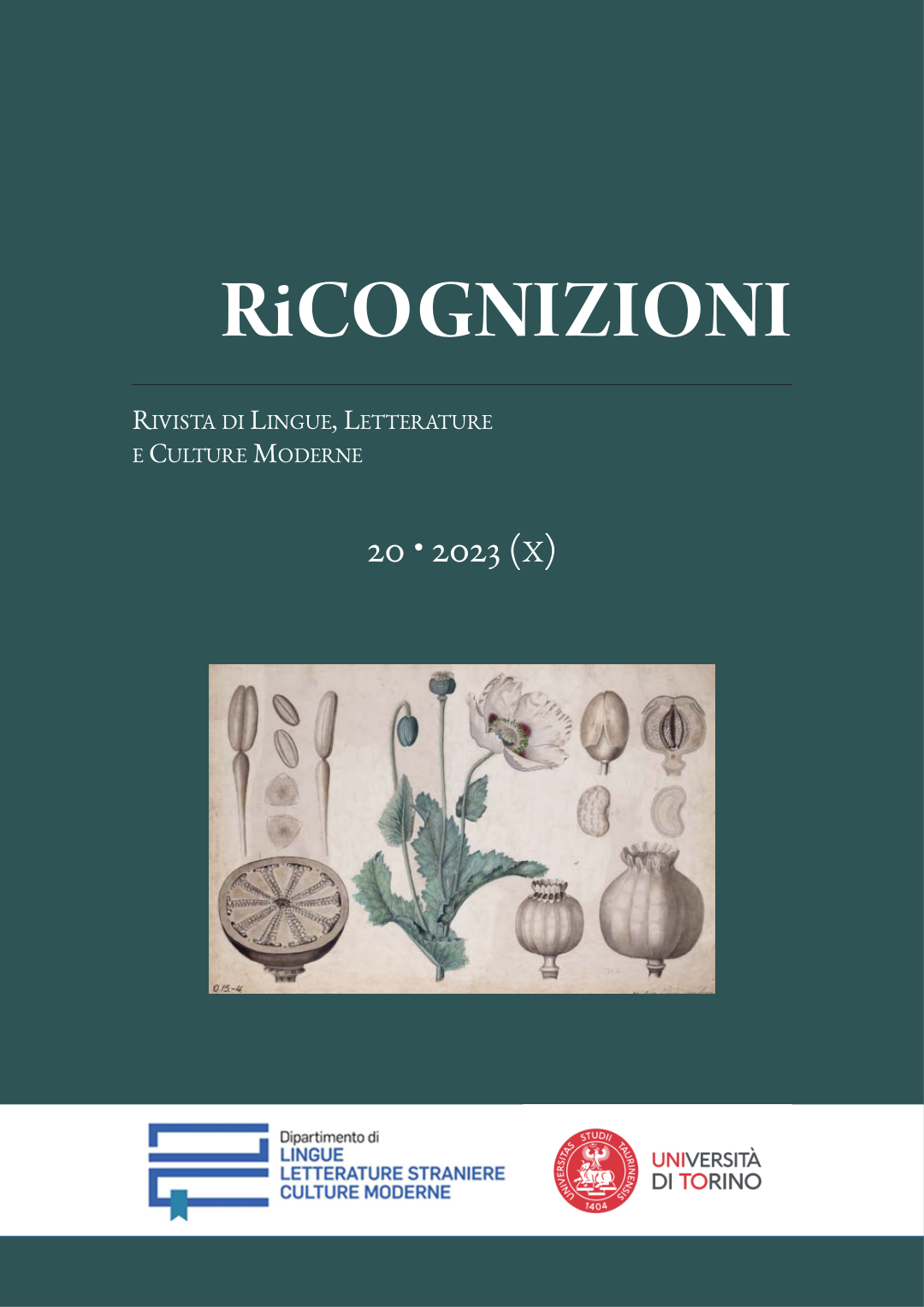Modern Resignation to Postmodern Despair in Don Delillo’s ‘Cosmopolis’ and ‘Falling Man’
Reading DeLillo through Derrida, Baudrillard, and Kierkegaard
DOI:
https://doi.org/10.13135/2384-8987/7448Parole chiave:
9/11 Fiction, Postmodernism, Modernism, Transcendentality, ArtAbstract
This article investigates how DeLillo depicts the impact of 9/11 in Cosmopolis and Falling Man through the antagonistic (intratextual) and oppositional (intertextual) connections between their characters, and then proves the importance of counter-narrative as a means to survive the encounter with communal and private tragedies. To this end, the articles provides a complementary analysis of DeLillo’s characterizations and stylistic choices in Cosmopolis and Falling Man, reading the novels through the lens of DeLillo’s essay “In the Ruins of the Future” (2001), Jean Baudrillard’s Simulacra and Simulation (1981) and “The Spirit of Terrorism” (2002), Jacques Derrida’s Writing and Difference (1967), Slavoj Žižek’s Welcome to the Desert of the Real (2002), and Søren Kierkegaard’s Either/Or (1843). While the two novels offer a Postmodern sublimation of the defining features and challenges of the post-9/11 lost sense of reality, I argue that Kierkegaard’s Modern philosophy is the key to a comprehensive reading of them, as it offers the theoretical ground for a metaphorical leap of faith that grants access to “a higher realm” of acceptance, overcoming the feeling of bewilderment and alienation in the aftermath of the late modern age.
##submission.downloads##
Pubblicato
Come citare
Fascicolo
Sezione
Licenza
Gli autori che pubblicano su questa rivista accettano le seguenti condizioni:- Gli autori mantengono i diritti sulla loro opera e cedono alla rivista il diritto di prima pubblicazione dell'opera, contemporaneamente licenziata sotto una Licenza Creative Commons - Attribuzione che permette ad altri di condividere l'opera indicando la paternità intellettuale e la prima pubblicazione su questa rivista.
- Gli autori possono aderire ad altri accordi di licenza non esclusiva per la distribuzione della versione dell'opera pubblicata (es. depositarla in un archivio istituzionale o pubblicarla in una monografia), a patto di indicare che la prima pubblicazione è avvenuta su questa rivista.
- Gli autori possono diffondere la loro opera online (es. in repository istituzionali o nel loro sito web) prima e durante il processo di submission, poiché può portare a scambi produttivi e aumentare le citazioni dell'opera pubblicata (Vedi The Effect of Open Access).








